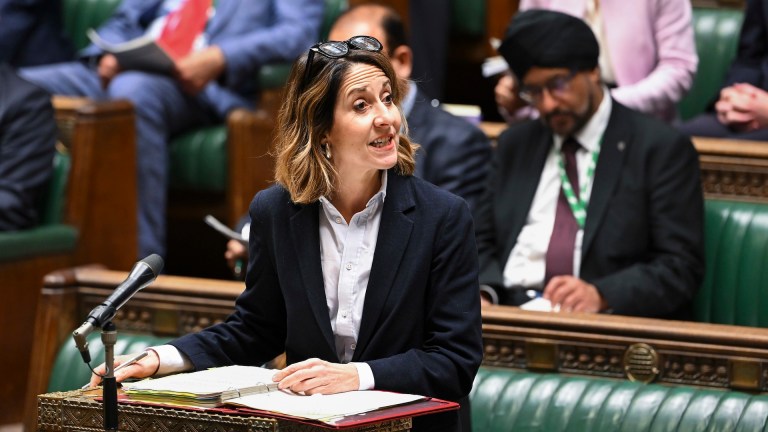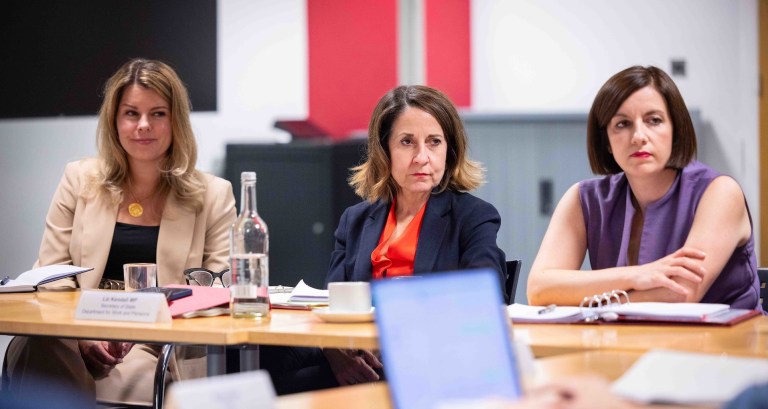The DWP is currently considering steps it can take to crack down on benefit fraud, such as giving staff powers to “arrest and carry out search and seizure”. But campaigners have said the government should prioritise fixing its own operations before turning on benefits claimants.
Ruth Talbot, the founder of Single Parent Rights, said: “Penny’s case is shocking. Imagine receiving a letter demanding you pay back £12,000 that you don’t even owe. These mistakes by the DWP occur because of a lack of consistency in how their decision making processes work and the lack of transparency around their processes.
“Incorrect repayment demands should never be received by families because the DWP should be double checking these figures. Penny has worked tirelessly to have this overpayment demand dropped by the DWP, yet they still haven’t issued her with an apology or paid her the money she is owed. Penny deserves both of these as a matter of urgency.”
The error happened when Davis took nine months off from her PhD at Loughborough University. It was during the pandemic and, as a single mother of three children who was going through a lot personally, she needed to take some time to prioritise her family.
She previously had a studentship, a form of doctoral funding that means PhD students have enough money for their living costs, but that was stopped when she took time away from her studies.
Davis started claiming universal credit – but she was also working part time, so she did not receive the full amount in benefits. In Spring last year, the DWP told her she would have to pay the universal credit back, amounting to £12,382.45.
“I just stopped in my tracks,” she says. “I couldn’t believe that they would ask for me to pay it back.”
Davis made an appeal and provided all the documentation to the DWP, but she found the process “very confusing” and inaccessible.
“They literally sat on it for months and then I got a letter from the DWP from the people that deal with overpayments saying they’re going to start taking the money out of my wages in January,” Davis explained.
“They didn’t even acknowledge my appeal. I kept ringing the people that deal with the appeal. And they just said that the DWP hasn’t replied. We keep contacting them and they haven’t replied. So that went on for months and months.”
Davis was due to be taken to court but, a few days before the hearing was to be called, she got a letter from the DWP explaining that it had made a mistake. The letter, which was 13 pages long and has been seen by The Big Issue, said that “there is no overpayment and arrears are due”.
It added: “As both decisions are revised completely in your favour then your appeal is lapsed.”
Although there was relief, Davis still faces the consequences of the allegations. She now has a poor credit rating having professed her debts.
She has had to continue her work as an art and design teacher four days a week, meaning it will take her longer to finish her PhD, because she no longer wants to rely on universal credit.
“It prolonged everything,” she says. “I couldn’t finish my PhD. It dragged it out even further. If I just had some support and I didn’t have to worry about money, I could have stayed on benefits and would have finished and then could have got a fantastic job.”
A DWP spokesperson says: “We sincerely apologise for this error and the customer is being reimbursed. The rate of universal credit overpayments due to official error, such as this, is currently at 0.6% – its lowest ever.”
But campaigners believe Davis’s case is indicative of a much wider issue. Talbot added: “Penny’s case isn’t a one off. At Single Parent Rights we regularly hear from single parents facing overpayment demands from the DWP. The DWP needs to urgently review all these cases, and reassess how their decision making processes work to ensure these mistakes stop happening.
“In cases where overpayments by the DWP are genuinely made, repayment demands should be capped at 5% of benefit payments to ensure families aren’t plunged into significant hardship for errors made by the DWP.”
Do you have a story to tell or opinions to share about this? We want to hear from you. Get in touch and tell us more.









